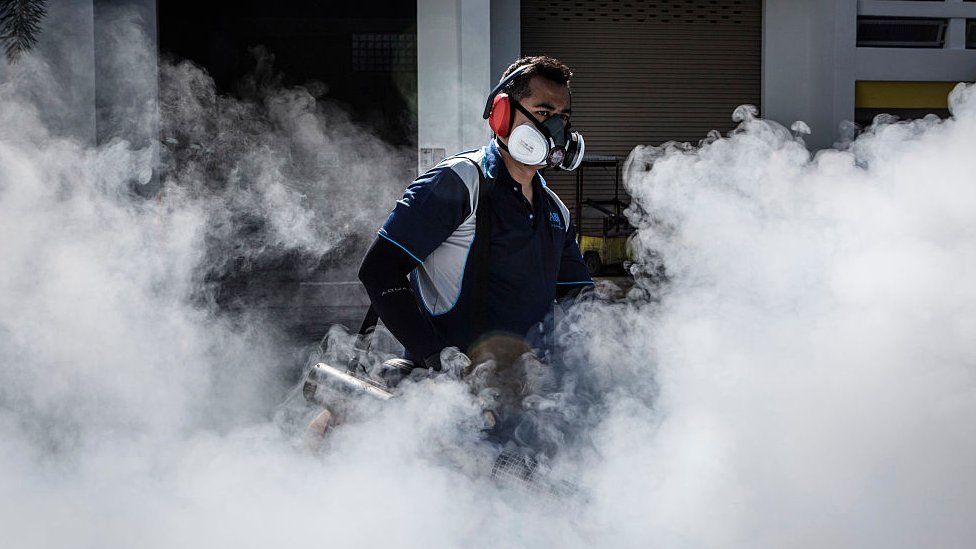Zika virus highly likely to spread in Asia, says WHO
- Published

Zika infections are "highly likely" to keep spreading in Asia, the World Health Organization (WHO) has warned.
Hundreds of cases of the virus have been reported in Singapore while two cases of Zika-linked microcephaly have already been confirmed in Thailand.
The mosquito-borne virus has been detected in 70 countries worldwide, at least 19 in the Asia Pacific region.
WHO director Margaret Chan said experts were still looking for ways to deal with the virus.
'New outbreaks'
In a report released on Monday at its annual meeting in Manila, the WHO said it is "highly likely that the region will continue to report new cases and possibly new outbreaks of Zika".
This is because the carrier of the disease - the Aedes mosquito - is widely found in the region, which also sees a high volume of travel.
There is also still uncertainty about the level of immunity in the regional population, the report added.
"Unfortunately, scientists do not yet have answers to many critical questions [about Zika]," Ms Chan said at the meeting.
Though the virus is known to have existed in Asia for decades, she noted that the first sign of its presence in some countries came from travellers whose Zika infections were only confirmed once they returned home.
"Is this weak surveillance, an indication of population-wide immunity, or proof that the virus has somehow acquired greater epidemic potential?" she asked.
Zika generally has mild effects but is more dangerous for pregnant women as it has been linked to severe birth defects, including the brain deformation microcephaly.
The latest large-scale outbreak originated in Brazil.
- Published11 October 2016
- Published31 August 2016
- Published30 September 2016
- Published14 July 2016
- Published8 September 2016